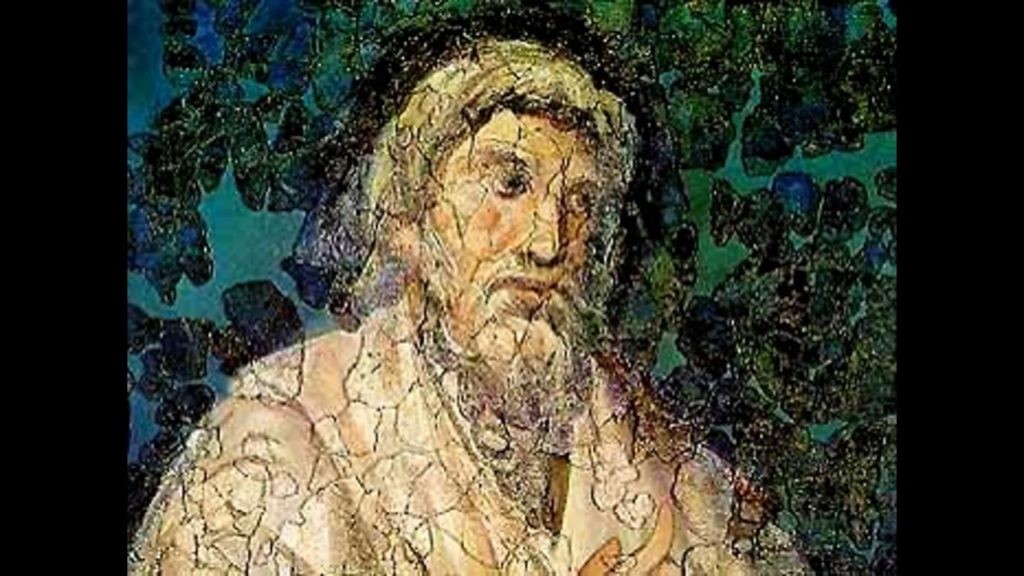– Anastasios
Just a while ago, talking about Arnobius, we were quoting Saint Jerome in saying: “Arnobius rhetor in Africa clarus habetur; qui cum Siccae ad declamandum iuvenes erudiret…” (In Africa, Arnobius the rhetor is considered important, who when he was in Sicca teaching the youths to declaim…). One of these was Lucius Caecilius Firmianus Lactantius (250-325). He came from a Christian family and was a very good student of Arnobius, becoming himself a very good teacher, so good that the emperor Constantine selected him as the tutor of his son Crispus. Even if he was living a court life, his own personal life was always modest and never affected from the splendor around him.
He was a great writer, some call him the “Christian Cicero,” for his beautiful style. It was observed that probably he was much more a great writer than a deep theologian even if his works were very clear in explaining Christian truths, but here he was not immune from wrong doctrines. Among his works we have De Opificio Dei (The Works of God), his masterwork Institutiones Divinae (The Divine Institutes) and De Ira Dei (On the Anger of God).
As we have said his writings were not immune from errors, like the idea that the Holy Spirit was removed from the Son of God and others. Having said that, we need also to recognize that this writer gave an important contribution to the development of some aspects of Christian doctrine of his time, at least until a certain extent: “The strengths and the weakness of Lactantius are nowhere better shown than in his work. The beauty of the style, the choice and aptness of the terminology, cannot hide the author’s lack of grasp of Christian principles and his almost utter ignorance of Scripture. The ‘dualistic and panegyrical’ passages, which have been such a puzzle to students of Lactantius, are manifestly not from his pen, but from that of someone who lived close to his time, probably a rhetorician of Trier” (Healy, P. (1910). Lucius Caecilius Firmianus Lactantius. In The Catholic Encyclopedia). Maybe a too harsh judgment? I am not in a position to judge on this, but certainly we have reasons also to admire him. There is an interesting quote from the letter 58 of Saint Jerome to Paulinus that is worth considering carefully: “Tertullian is packed with meaning but his style is rugged and uncouth. The blessed Cyprian like a fountain of pure water flows softly and sweetly but, as he is taken up with exhortations to virtue and with the troubles consequent on persecution, he has nowhere discussed the divine scriptures. Victorinus, although he has the glory of a martyr’s crown, yet cannot express what he knows. Lactantius has a flow of eloquence worthy of Tully: would that he had been as ready to teach our doctrines as he was to pull down those of others! Arnobius is lengthy and unequal, and often confused from not making a proper division of his subject. That reverend man Hilary gains in height from his Gallic buskin; yet, adorned as he is with the flowers of Greek rhetoric, he sometimes entangles himself in long periods and offers by no means easy reading to the less learned brethren. I say nothing of other writers whether dead or living; others will hereafter judge them both for good and for evil.” Let us not judge Jerome for his severity but just concentrate on his judgment of Lactantius that, from what we saw before, it seems nevertheless quite accurate.
Let us read the first lines of De Ira Dei in the translation of William Fletcher D.D.: “I have often observed, Donatus, that many persons hold this opinion, which some philosophers also have maintained, that God is not subject to anger ; since the divine nature is either altogether beneficent, and that it is inconsistent with His surpassing and excellent power to do injury to any one ; or, at any rate, He takes no notice of us at all, so that no advantage comes to us from His goodness, and no evil from His ill-will. But the error of these men, because it is very great, and tends to overthrow the condition of human life, must be refuted by us, lest you yourself also should be deceived, being incited by the authority of men who deem themselves wise.”
The mosaic of Christian writers who were Fathers of the Church or who contributed to the development of Christian doctrine in the first centuries is great and has many layers in it. So let us consider that God, who is the only truly wise, can, as Mother Teresa of Calcutta used to say,write straight with crooked lines.


 Follow
Follow


